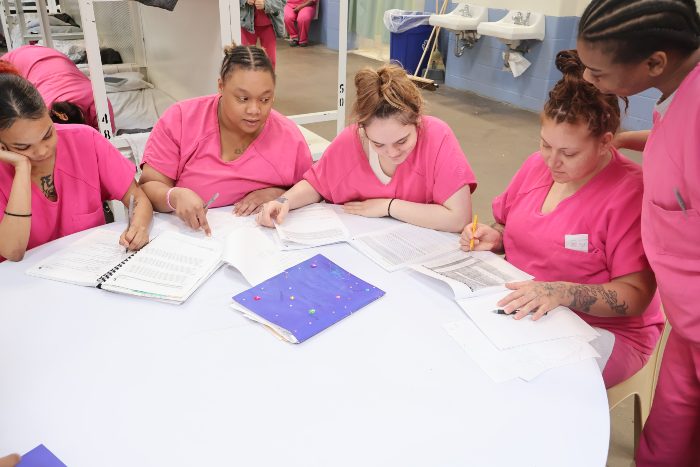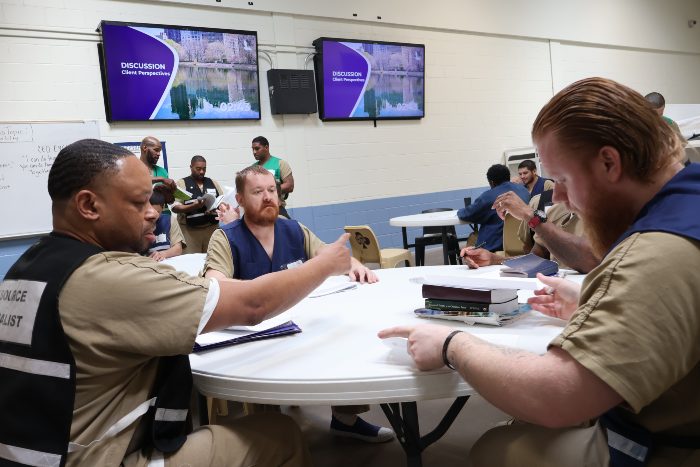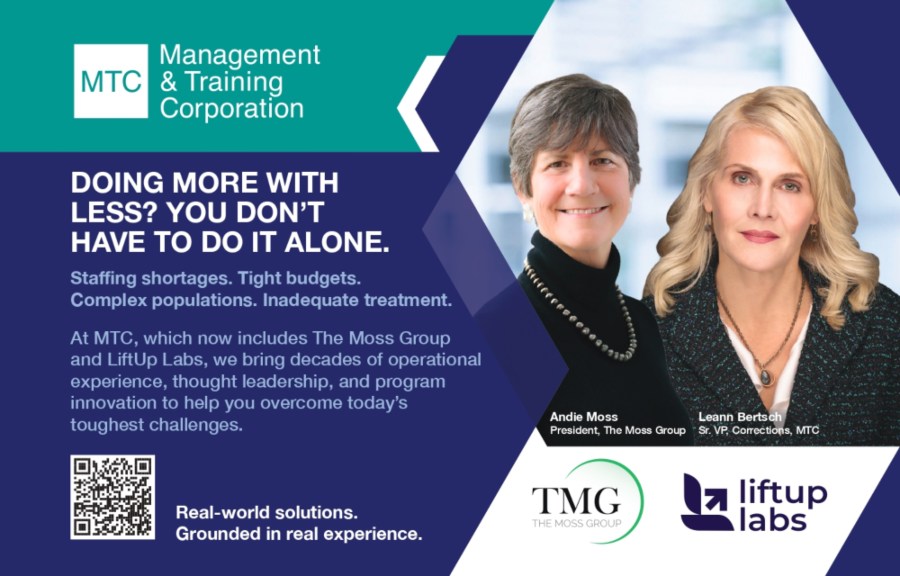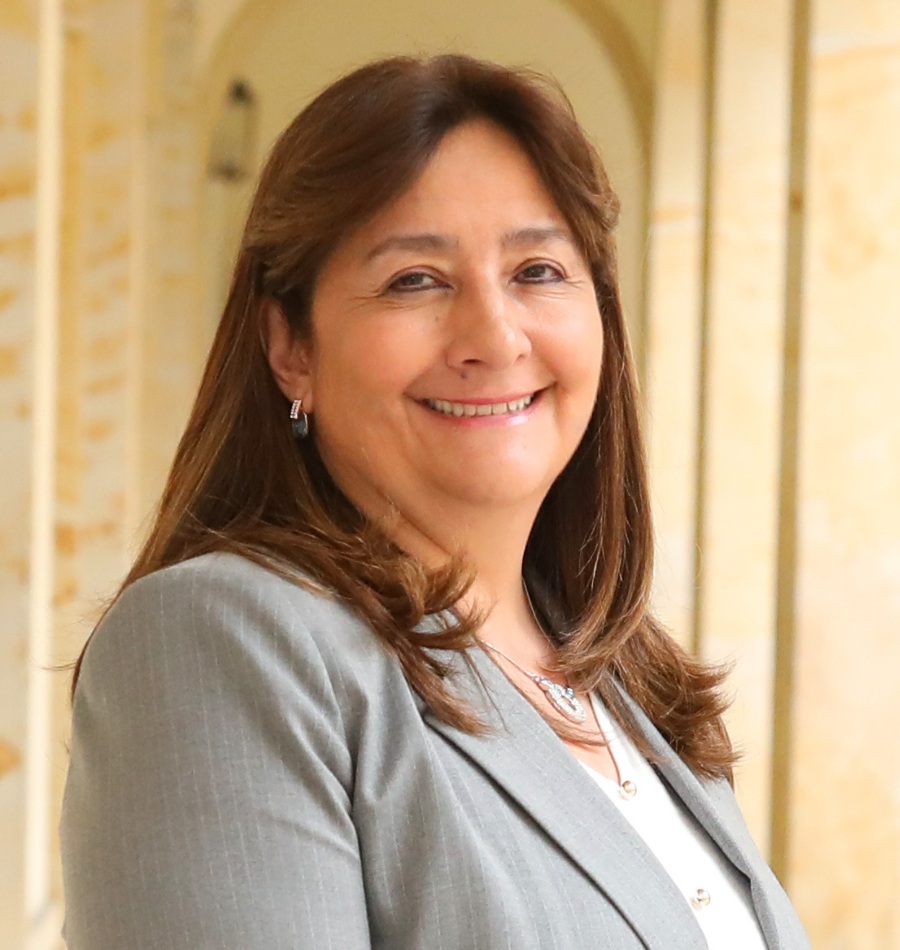Innovation in Practice
USA
Correctional agencies are grappling with limited staff, growing populations, and persistent fidelity issues in the delivery of rehabilitative programs in both secure settings and in the community.
There is also the matter of scaling delivery across multiple sites and ensuring clients receive a coherent experience. In this reality, innovation is not a luxury – it’s a necessity.
To bridge the gap between rehabilitation ideals and institutional constraints, a highly scalable treatment delivery model was created to support delivery of programs such as cognitive restructuring, anger management, substance use disorder treatment, and behavioral health.
The goal was to create a treatment setting where every program requirement is met with total clarity, where skilled staff are able to focus on the most meaningful parts of their jobs, and where participants are encouraged to take ownership of their learning.

interLIFT is a program delivery model that retains the critical human element combined with the innovative use of digital technology to overcome the barriers to effective programming at scale while maintaining unmatched fidelity. This approach was the result of a joint venture between Management & Training Corporation and LiftUp Labs, launched in 2024 to develop content and technology adapted to the realities of correctional settings.
The model draws on evidence that blended learning and hybrid educational models yield 30-50% higher learner engagement and retention rates compared to traditional or fully online formats, and show strong promise in contexts like correctional education where sustained engagement is vital¹.
At the heart of this collaboration is a fundamental belief that corrections should focus on rehabilitation with programming that is individualized, experienced by the learner as coherent, and humanizing both in values and in practice. The partnership is making a tangible impact on the daily experience of staff and inmates alike.
The model has been implemented across a 2,200-bed facility consisting of 40 dorms and seven distinct audiences, as well as in eight other facilities with similar programming needs. In these settings, interLIFT enables a more predictable and high-fidelity approach to treatment delivery.
Preliminary evaluations of the interLIFT implementation at four MTC sites have shown promising results. Participants report improved emotional awareness, increased goal-setting behavior, and greater interpersonal accountability.
These outcomes translate into more stable housing units and reduced behavioral incidents.
From an institutional perspective, the model alleviates pressure on staff by involving well-trained peers. This format cultivates a rehabilitative subculture within the prison, countering idleness and lack of engagement.
A growing body of evidence shows that incorporating peers into learning models not only promotes active engagement, critical thinking, and the exchange of diverse perspectives, but also deepens understanding by encouraging students to reinforce their knowledge through teaching – a method proven to solidify comprehension and expose areas needing improvement.

For participants, there is a greater sense of momentum and shared purpose, and clinical staff spend more time on meeting individual needs because they are not burdened by rote instruction. Dr. Lisa Peterson, Regional Facility Administrator, sees this as a chance to “advance evidence-based correctional practices and develop modern solutions to staffing and implementation challenges faced across the country.”
Several perspectives shared by participants illustrate the diverse impact of the program on their lives. Many emphasized how the curriculum provided valuable insights into personal growth, with one participant stating, “It has given me all the tools I need to go back to free and not come back to prison.” Another remarked that the additional time counselors have individually with clients was crucial for their progress, reinforcing the importance of one-on-one support.
Others highlighted the importance of the reflective structure that, rather than relying solely on instructional delivery, encourages participants to engage actively with the material and relate it to their own experiences. One participant noticed, “I fell off the wagon and got lost in my addiction. The program is an opportunity for me to get my head back on straight and lift the fog.”
Many also noted the positive effects of the program’s structured design, with one individual mentioning, “The design is done in a way to keep your attention. The discussion format is helpful to get everyone’s input.” Participants highlighted the program’s ability to foster interaction, with one saying, “It’s good to have different people’s opinions on things and not have one perspective,” while another expressed, “Group learning is healthy.”
Multiple participants shared their beliefs that the interLIFT program has equipped them to stay out of prison after release. One stated, “By coming here, it is rekindling the tools I have to give me the strength I need to stay out.”“It has given me all the tools I need to go back to free and not come back to prison.”
Overall, the perspectives shared reveal a wide range of experiences, but a consistent theme of the program’s potential to equip individuals with essential tools for personal transformation and success inside and outside the walls of the facility.
Formal academic evaluation of the interLIFT model is planned to begin in late 2025, with a difference-in-differences (DiD) research design in conjunction with one of MTC’s State correctional agency partners.
In a field where resources are scarce and stakes are high, the answer may not lie in doing more – but in doing better. With interLIFT, rehabilitation is no longer limited by staffing constraints; instead, it is expanded by the strength of community, the structure of blended learning, and the belief that everyone deserves the tools to grow.
References
¹ Revitalizing Learning: Examining how Hybrid Environments Influence Student Engagement and Academic Success. Mahender, P., & Sharma, M. (2025).

Ryan Jackson is an experienced leader in correctional education, who has led Acceleron Learning since 2011. The company provides life skills education programs used in over 200 correctional facilities across the U.S., including statewide deployments in Texas, Colorado, and Wyoming. Building on his background in broadcasting and corporate strategy consulting with Accenture, where he helped guide major reorganizations at Fortune 100 companies, Ryan partnered with Management & Training Corporation (MTC) in 2024 to create LiftUp Labs.



